Portait of Giovanni Antonio Magini
by
Giovanni (Ioannis) Antonio Magini
Italian mapmaker
Detail
Date of this edition: 1620
Dimensions (not including margins): 21 x 31 cm
Dimensions (including margins): 27,7 x 40,7 cm
Condition: very good. Sharp copper engraving printed on hard paper. Wide margins. Small water stain in top margin.
Condition rating: A
From: Italia. Di Gio. Ant. Magini
Reference: Cremonini, L’Italia nelle vedute e carte geografiche, 15
Price (without VAT, possibly to be added): €650,00 (FYI +/- $721,50 / £578,50)
Unless otherwise specifically stated on this map page, we charge the following expedition costs in euro (unfortunatelly, gone up with Covid, but still too low in reality!):
– Benelux: 40 euro
– Rest of Europe: 60 euro
– Rest of the World: 100 euro
In stock
Related items
-

Padua (Padova) – Patavium noblissima
by Georg Braun and Frans HogenbergPrice (without VAT, possibly to be added): €1 200,00 / $1 332,00 / £1 068,00City of education and science
-

Portrait Abraham Ortelius, by Galle
by Abraham Ortelius, Philip GallePrice (without VAT, possibly to be added): €800,00 / $888,00 / £712,00
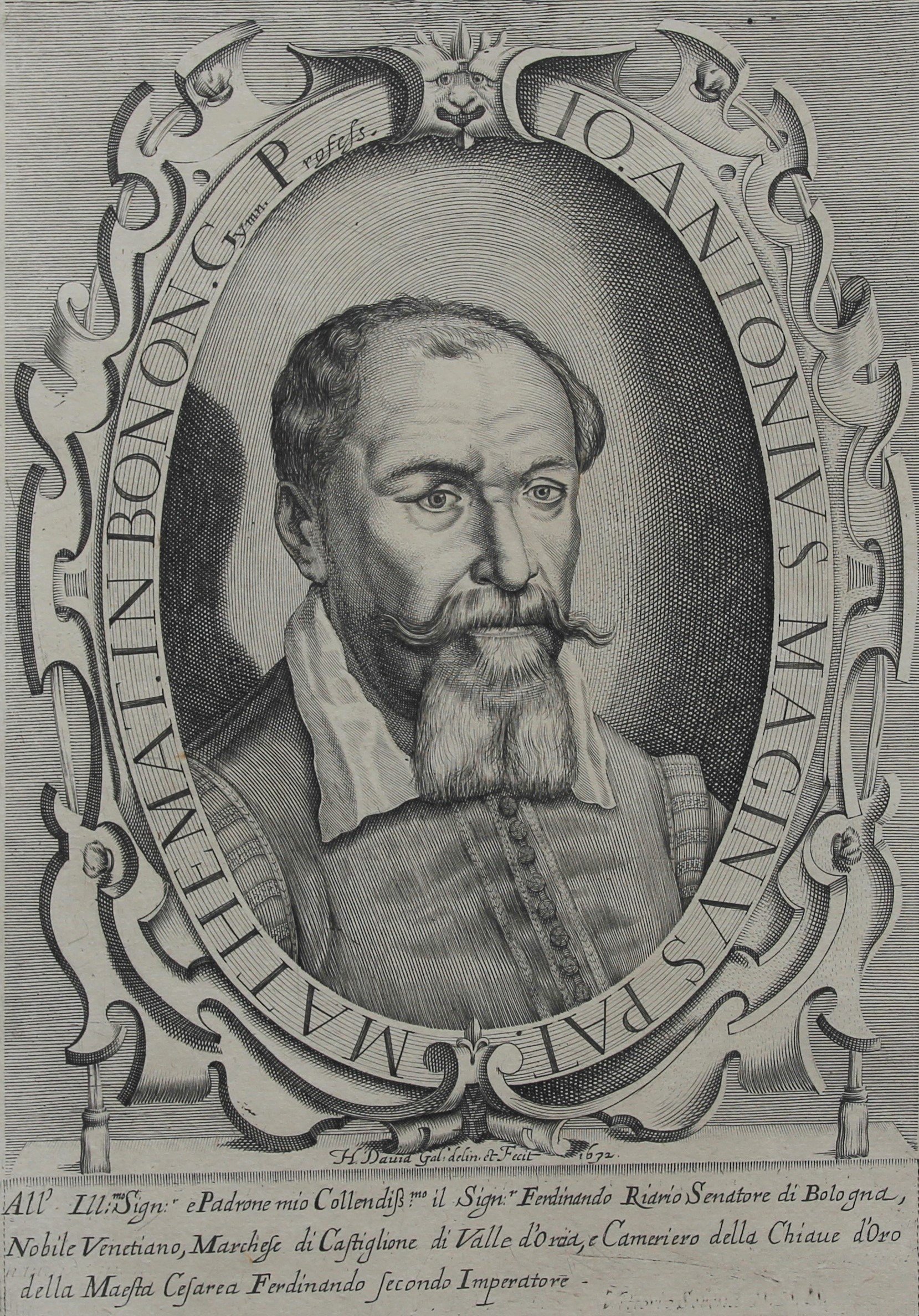
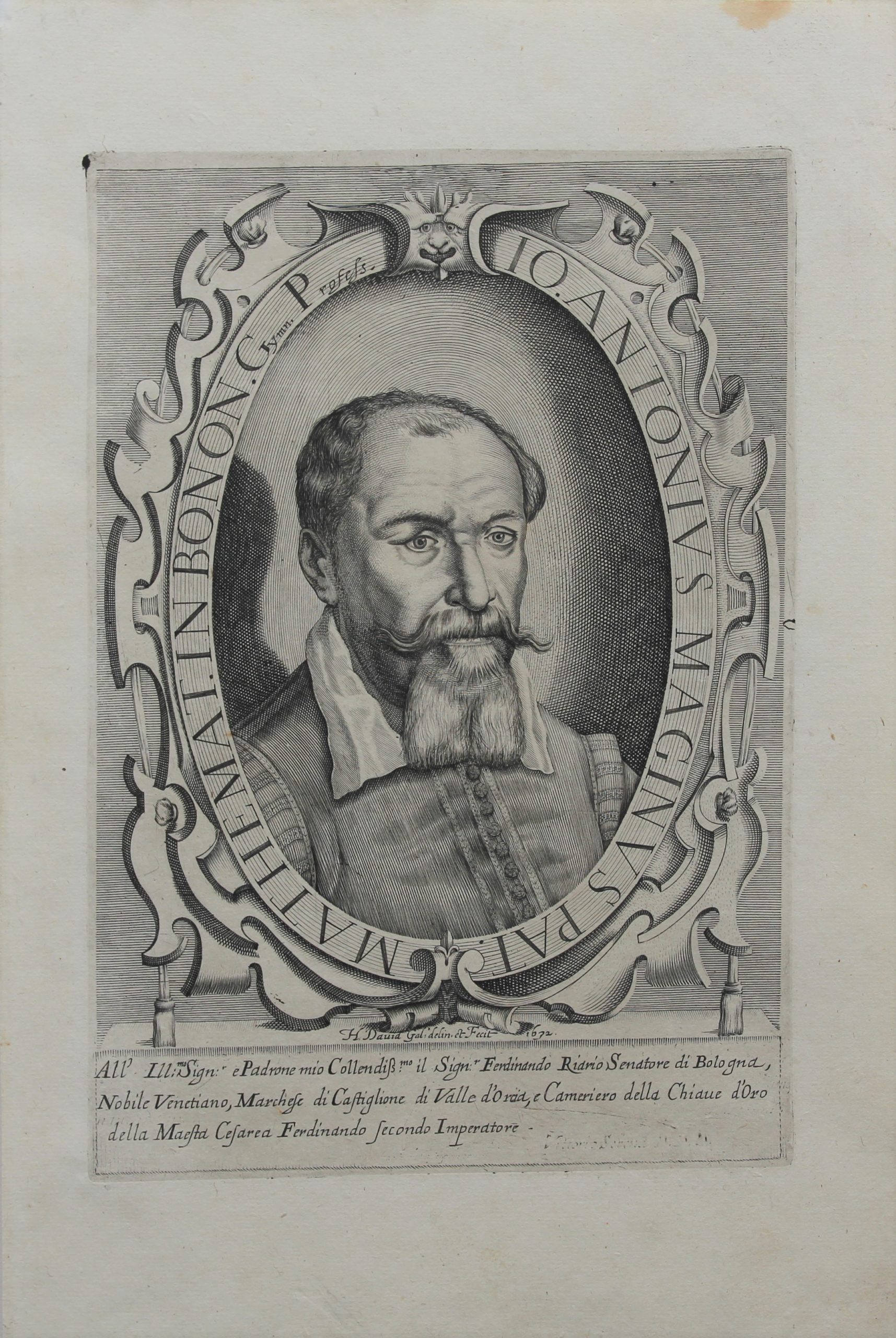
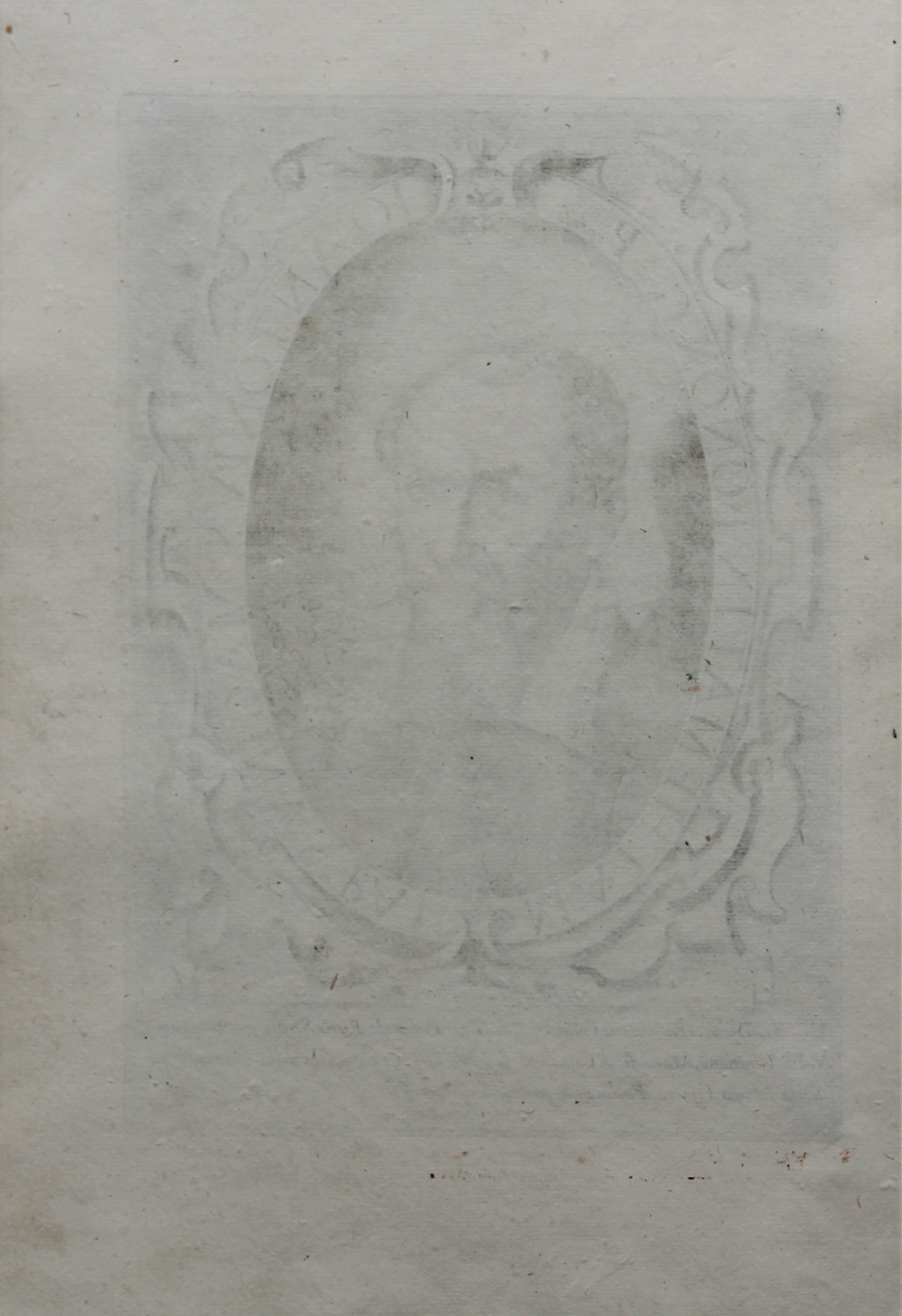
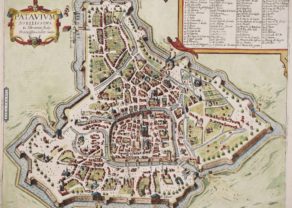

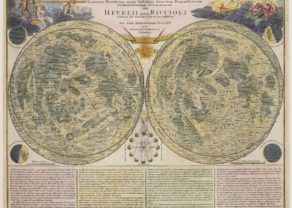
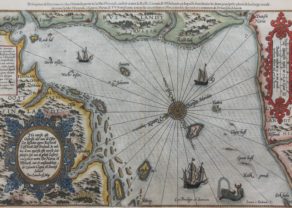
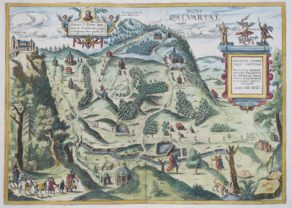
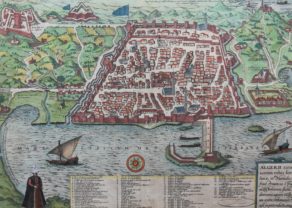
Giovanni Antonio Magini
Io. Antonius Maginus…Engraved by H. David, published by Sebastiano Bonomi, Bologna.
Magini (born in Padua 1555 – 1617) is well known for his reduced size edition of Ptolemy’s Geographiae published from 1596 in Italian as “Geografia cioe Descrittione Universale della Terra”.
His attractive Atlante geografico d’Italia (Geographic Atlas of Italy), printed posthumously by Magini’s son in 1620 provides a comprehensive series of Italian maps for the first part of the 17th century, combining the traditional styles of the Italian map maker with features used in North European mapping, such as the ‘Mercator’ style wavy lines for the sea patterns.
He corresponded with Tycho Brahe, Abraham Ortelius and Johan Kepler. His correspondence was edited in 1886 by Antonio Favaro.
In 1588 he was chosen over Galileo Galilei to occupy the chair of mathematics at the University of Bologna after the death of Egnatio Danti.
The lunar crater Maginus is named after him.